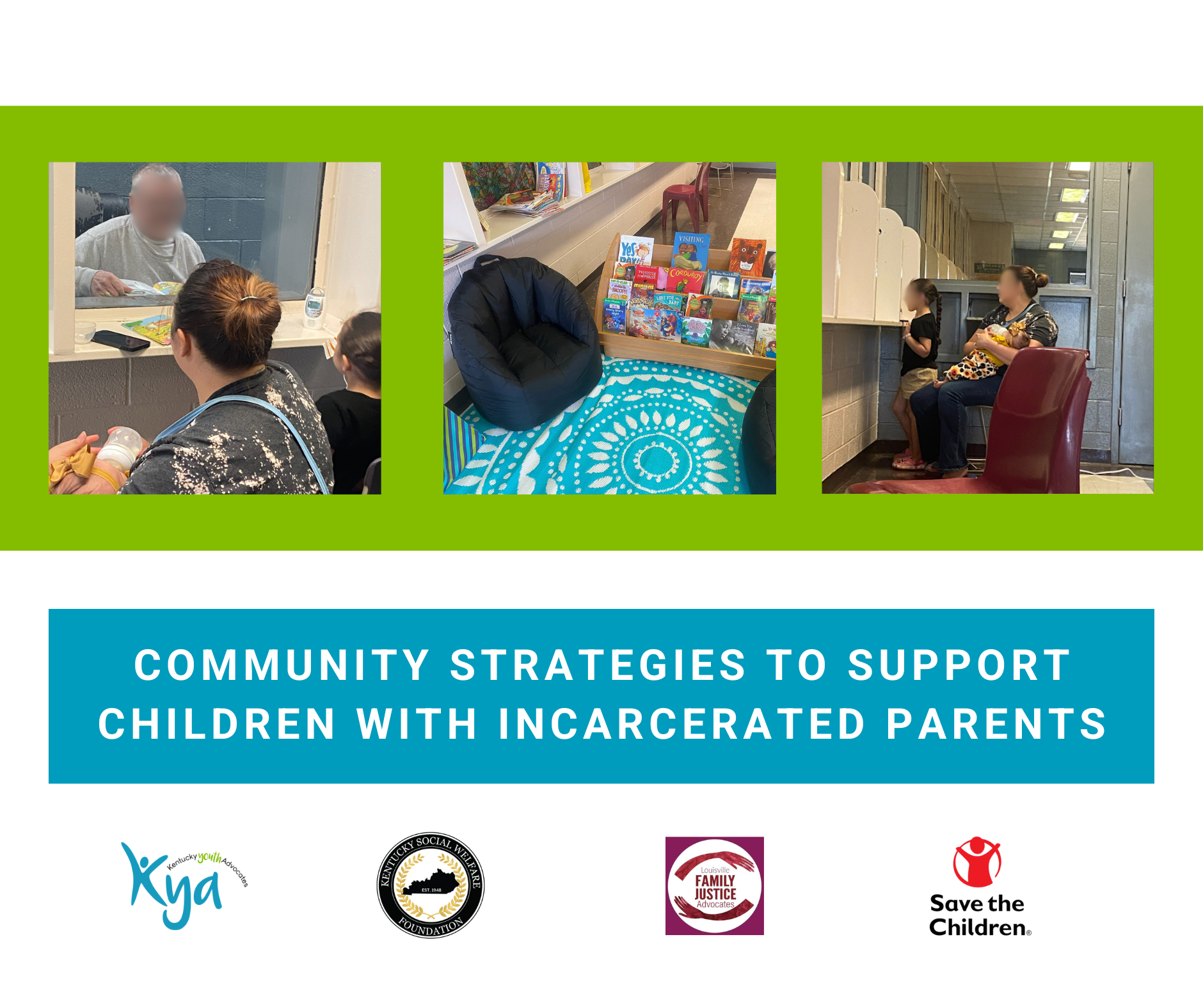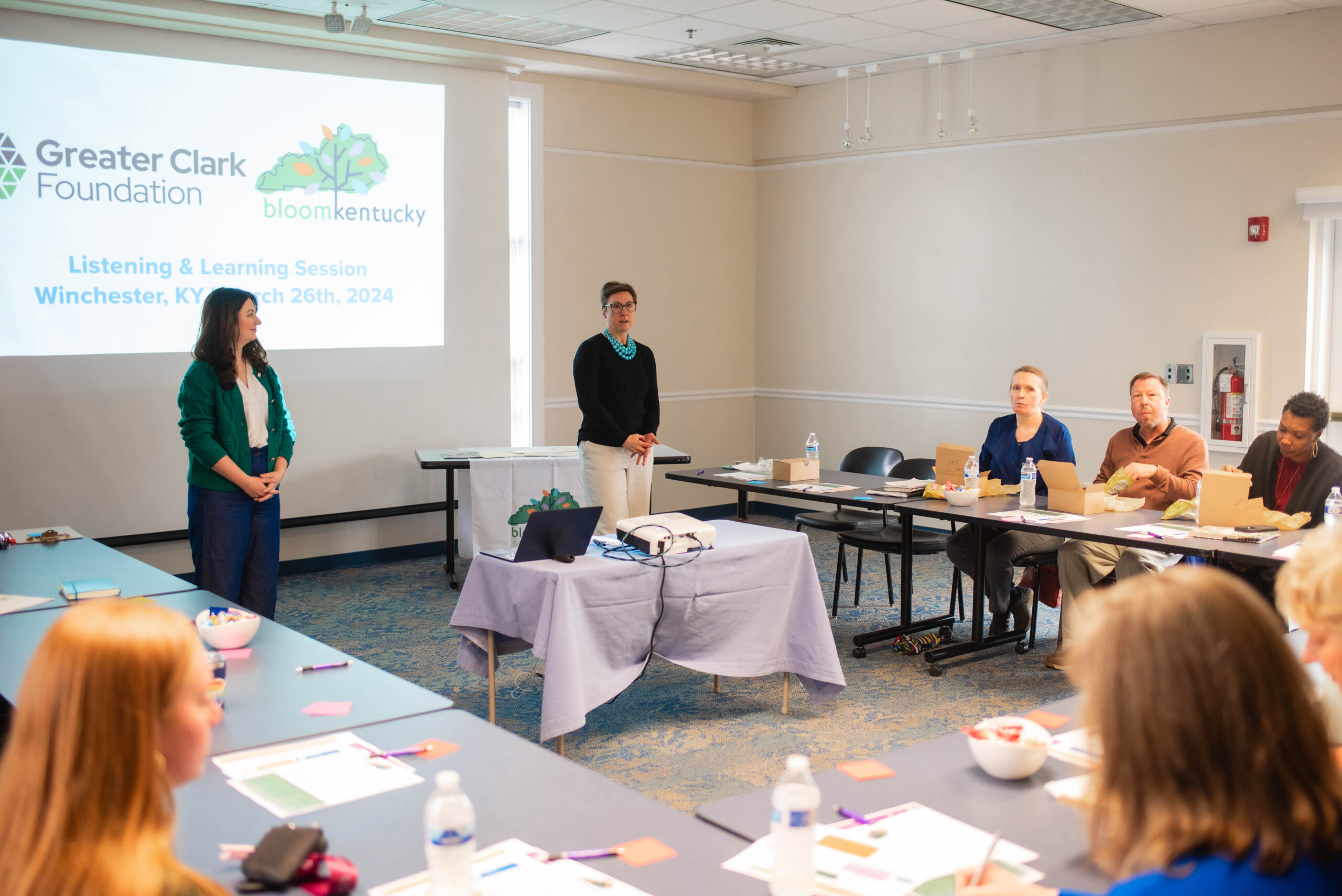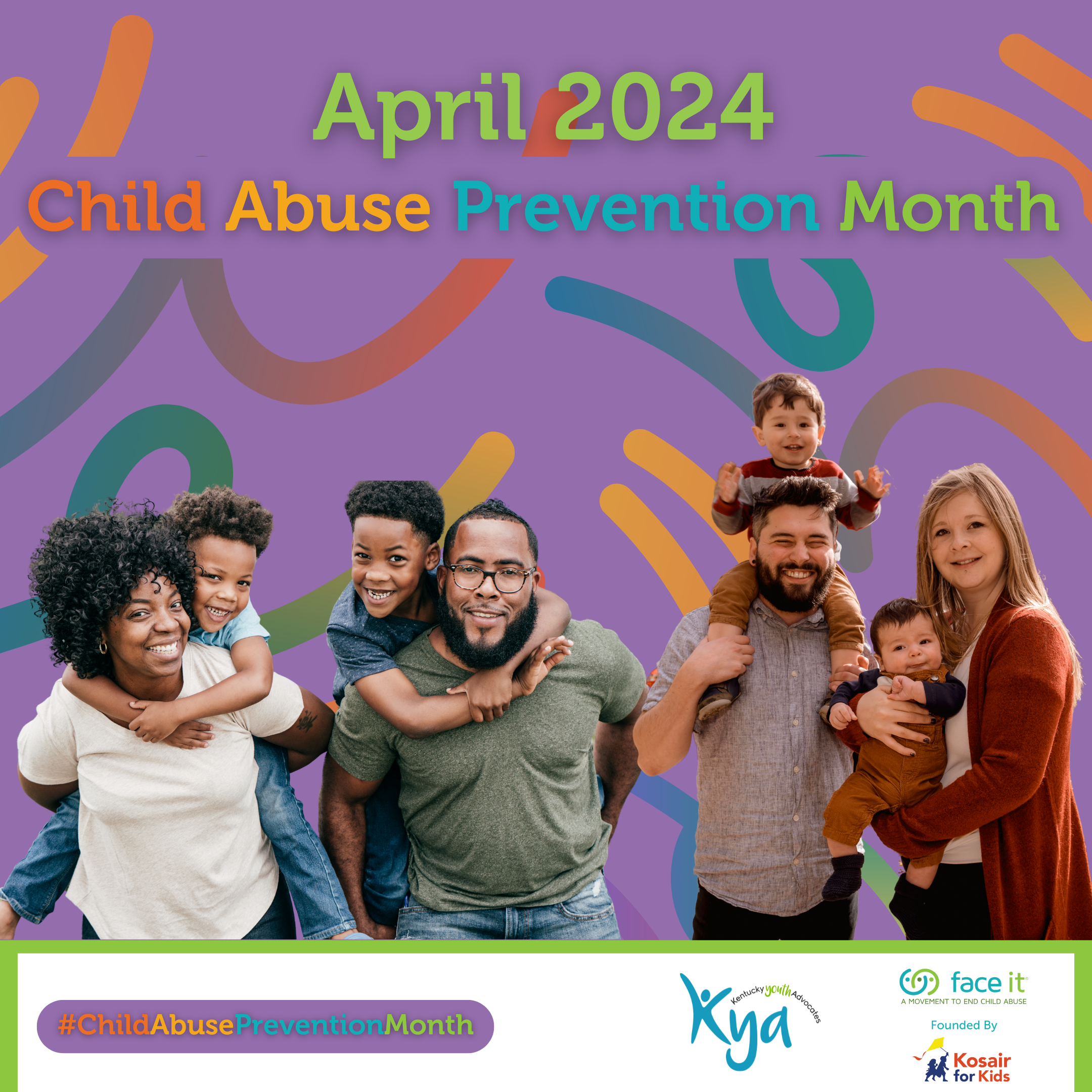 What comes to mind when you think of kin? Family dinners… birthday parties… camping trips… and vacations to grandma and grandpa’s? For more than 60,000 kids in Kentucky, kin means living with a relative or family friend for safety and security because their parents cannot raise them, according to a new KIDS COUNT® report by the Annie E. Casey Foundation, Stepping Up for Kids: What Government and Communities Should Do to Support Kinship Families. That’s 6 percent of kids in Kentucky, and those numbers, from 2008-2010, have doubled from a decade ago.
What comes to mind when you think of kin? Family dinners… birthday parties… camping trips… and vacations to grandma and grandpa’s? For more than 60,000 kids in Kentucky, kin means living with a relative or family friend for safety and security because their parents cannot raise them, according to a new KIDS COUNT® report by the Annie E. Casey Foundation, Stepping Up for Kids: What Government and Communities Should Do to Support Kinship Families. That’s 6 percent of kids in Kentucky, and those numbers, from 2008-2010, have doubled from a decade ago.
While the ideal situation for children is to live safely with their parents, the next best situation is living with such kin when that is not a possibility. Research shows that children in kinship care are safe and have an increased sense of permanency, stability, and well-being.
For a glimpse of what youth have to say about their experiences with kinship care, see below:
- “I called my grandma and asked her if she could come pick me up, and she said yes, and I was like, ‘it ain’t for the weekend,’ and she was like ‘alright,’ and then I said ‘okay, okay,’ and then she said ‘alright’ and then she had my auntie come and pick me up, and then she came [and] picked me up [from my aunt’s], and then I moved in with my grandma…. I didn’t want to take nothing [with me]. I wanted to start over.”
- “You’re happy for your grandma that she came, she took you in, because you want so you can see all your family members and stuff. Because if I had gone to foster care, I wouldn’t have never saw my cousins or nobody.”
- As one girl in a legal guardianship situation stated: “She yells a lot, but I still care for her because she, she takes care of me all the time, and she handles my problems.”
- “What if my grandma died? [I worry about her be]cause she got heart problems and stuff…They said two years [ago] that she may not have [very] long to live and stuff…. [If] my uncles or something do not take us…. they are talking about putting us in foster homes, like I kind of worry about.”
The reasons parents are not able to care for their kids vary from domestic violence, parental substance abuse and mental illness, and child abuse, to illness or death of a parent, divorce, incarceration, deportation, and military deployment or employment opportunities in other states. Regardless of the reason, family and friends are stepping up in Kentucky to care for children they love. And these folks need support to provide the best life they can for those kids. They need emotional and family economic support, because caregivers raising kin are more likely to experience challenges like being single, living with low and/or fixed incomes, or being unemployed – which makes taking on such additional costs for child care and health insurance difficult. They can also be unfamiliar with available supports or struggle to access them, such as Temporary Assistance for Needy Families (TANF) or the Kentucky Children’s Health Insurance Program (KCHIP).
Kentucky has a strong track record of placing children with their kin instead of in foster care. We can and should take steps to actively support extended family and friends as they assume new care giving roles. The following recommendations were highlighted in a report released yesterday from the Annie E Casey Foundation on the issue of kinship care.
- Help families achieve financial stability through access to TANF-funded programs designed to meet their needs.
- Remove barriers within the child welfare system by involving relatives in the decisions about a child’s care and reforming foster-home licensing requirements.
- Bolster kinship families by helping relative caregivers secure stable housing, access to child health care and community-based services.
Additionally, a quick internet search will show you that there are over 43 grandparent support groups in Kentucky. These groups provide opportunities to share good times and hard times, ideas for parenting, friendship, and helpful resources. They also provide a voice for relatives taking care of their loved ones.
In so many ways, families taking care of kids is a Kentucky tradition. With the number of children being cared for by kin doubling, we can’t afford to let these families go unsupported. You can support kin caregivers by directing them to a local support group or supporting legislation that benefits both kin caregivers and kids. We can all make a difference for kids like the ones quoted above.






Leave A Comment